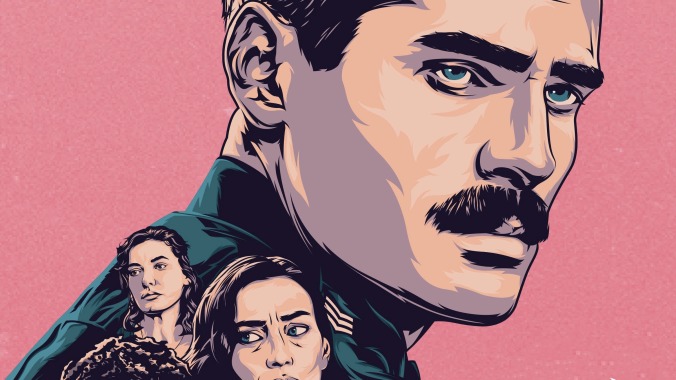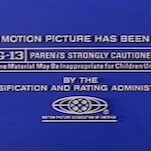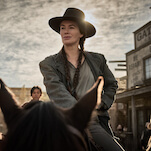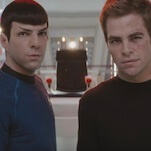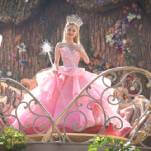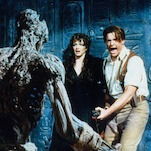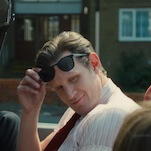Jim Cummings’ deeply discomfiting comedy Thunder Road takes its title from the majestic opening track of Bruce Springsteen’s breakthrough album, Born To Run, but its spirit recalls the Boss’s throatier cries from the heart and yawls of confused blue-collar emotion. In a terrific opening scene (basically a remake of Cummings’ award-winning 2016 short film of the same title, with one key change), a Texas patrolman named Jimmy Arnaud (Cummings) takes to the front of a church to deliver an improvised eulogy for his mother. He is the only one of three siblings to have made it out to the funeral, though we don’t know why. It’s obvious that he doesn’t want to be there either. His rambling, devolving 10-minute monologue slips from thank-yous and reminisces about his problems with dyslexia and his mother’s love of Bruce Springsteen (specifically “Thunder Road”) into flop sweat and meltdown, breaking into ugly, fully-body crying and finally a bizarre, silent interpretive dance of despair.
Like the best moments in the film, it walks the line between cringe comedy and sincere anguish. We see the mustachioed, nicotine-gum-chewing Jimmy as a man cornered, on one side, by a social obligation to say and do something meaningful, and, on the other, by an emotional survival instinct that tells him to run and hide. His life is a mess of frictions. He’s going through a divorce; his 10-year-old daughter, Crystal (Kendal Farr), is getting in trouble at school; and though he still thinks he’ll share custody of the kid with his venomous ex, Roz (Jocelyn DeBoer), the deck seems stacked against him. The one-sided, one-dimensional supporting characters are the weak spot of Cummings’ script. But we still get the sense that Jimmy’s problems are self-made. He is incapable of admitting that anything is truly wrong: not to his tireless, caring partner (Nican Robinson) or the rest of the guys on the force; not to Roz or the family-court judge; possibly not even to himself.
Instead, Jimmy swings from playing nice to completely losing it—from soft-spoken chitchat to outbursts and death threats—and back again, with pathological apologies (“I’m sorry if I committed a hate crime against you”) and overcompensations in between. Cummings’ style is theatrical, sometimes employing whoppingly long takes, but it owes as much to the man-child freakouts of Will Ferrell and the comedies of boiling frustration of Jody Hill as it does to the stage. (For what it’s worth, Cummings’ performance is reminiscent of a Will Forte character.) Whether Thunder Road itself has something meaningful to say is an open question, though the way Jimmy draws a gun during a climactic scene suggests that Cummings has some ideas about the state and reflexes of American policing on his mind. Through a combination of caricature and psychological portrait, subtle touches and howls of impotent, uniformed rage, his film offers a memorable depiction of a man ill-equipped to deal with or direct his feelings—probably not all that different from the rest of us.
